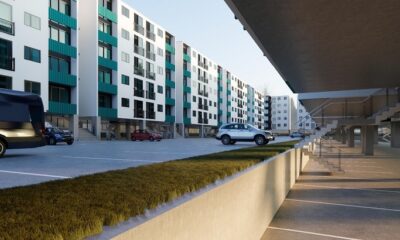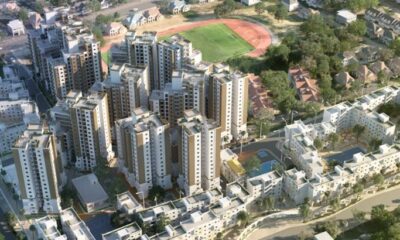Residential Projects
How travellers are driving Nairobi real estate growth
Business travellers prefer to stay at serviced apartments, which are cheaper than hotels.

As business executives face pressure to optimise their overseas travel budgets, and make savings, many officials are choosing to stay at serviced apartments as a cheaper accommodation option.
Budget travellers mainly those with families are also capitalising on serviced apartments in Nairobi – piling more pressure on the few high quality apartments available in the city.
This trend is sparking new investments in Nairobi real estate, ranging from five-star hotel-based residences to high-end serviced apartments, in prime locations across the city as investors race to meet the rising demand for non-hotel accommodation among travellers.
According to a report by real estate investment firm Cytonn, demand from foreign investors and expatriates – who stay for more than 15 days a visit – has raised uptake of serviced apartments to a record 80 per cent occupancy rate.
“Compared to 2017 serviced apartments performed better in 2018, with the rental yields coming in at 7.4 percent compared to 5.3 percent.
“Occupancy has increased by 8 percent to 80 percent solely attributed to a better political climate in 2018,” Cytonn says.
Nairobi, which had 3,414 serviced apartments as at 2015, will soon accommodate new 1,189 units set for completion by 2020, according to the report. New entrants include Skynest with 250 serviced apartments, Britam (163), Montave (147), Radisson Blu (123) and 9 Oak’s 120 units.
Rental yields
According to Cytonn, serviced apartments in Kilimani enjoyed 86 per cent occupancy in 2018 – giving investors the best returns at 10.9 per cent rental yield, with those at Westands/Parklands node offering 10.6 per cent rental yield and Limuru Road offering 9.7 per cent rental yield.
Studio apartments attracted a 13.5 percent rental yield at 82 percent occupancy followed by one-bedroomed apartments that offered a 9.4 percent rental yield with 79 percent occupancy.
A two-bedroomed property yielded 7.7 percent rental income with 73 percent occupancy while three-bedroomed apartments attracted a 66 percent occupancy rate for a 7.2 percent rental yield.
RELATED: Britam takes cover in property as stock market loses shine
Serviced apartments, also known as fully furnished apartments, are a more affordable choice compared to short-term hotel stays and a more convenient alternative to long-term rentals.
They allow a leasee to move into a fully furnished house where they can host guests as they wish while enjoying private occupancy during the period agreed upon.
The facilities are quite popular in the developed economies especially in North America, which accounts for 61 per cent of the world’s serviced apartments; Europe at 17 per cent; Australia at 11 per cent and Asia at 5.5 per cent.
RELATED: How millennials are sparking Nairobi serviced apartments boom
Although Africa is far from joining the big boys of the sector, there is a growing demand for serviced apartments especially in countries such as South Africa, and Kenya, whose capital cities are being positioned as regional business hubs.












